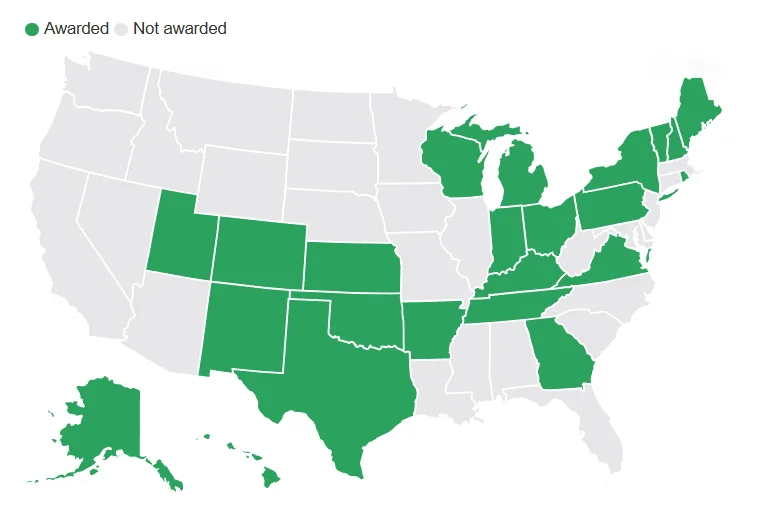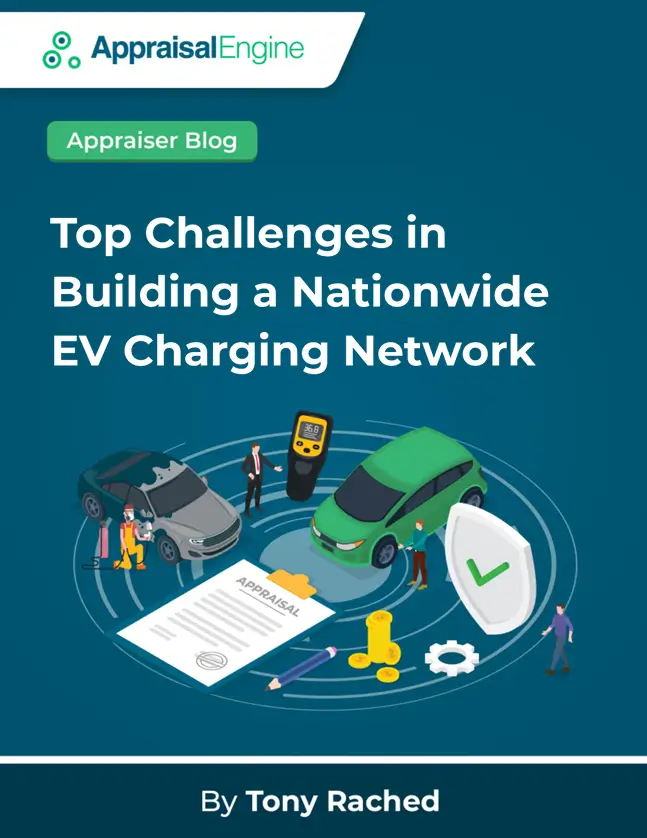The U.S. is investing billions to create a vast EV charging network, but progress is sluggish. This post dives into the major hurdles slowing down the rollout of this critical infrastructure.
Top Challenges in Building a Nationwide EV Charging Network (PDF)
Introduction
Building a nationwide EV charging network is no small feat. Despite a $5 billion investment from the federal government, the progress has been slow, with only a handful of stations operational after more than two years.
This article explores the top challenges faced in this ambitious project, shedding light on the complexities and roadblocks hindering the development of a seamless EV charging infrastructure across the U.S.

| Awarded state | Number of sites awarded | Number of sites open |
|---|---|---|
| Alaska | 9 | |
| Arkansas | 19 | |
| Colorado | 52 | |
| Georgia | 5 | |
| Hawaii | 8 | 1 |
| Indiana | 39 | |
| Kansas | 6 | |
| Kentucky | 42 | |
| Maine | 15 | 1 |
| Michigan | 41 | |
| New Hampshire | 4 | |
| New Mexico | 20 | |
| New York | 20 | 3 |
| Ohio | 46 | 1 |
| Oklahoma | 13 | |
| Pennsylvania | 85 | 1 |
| Rhode Island | 2 | |
| Tennessee | 30 | |
| Texas | 50 | |
| Utah | 15 | |
| Vermont | 1 | 1 |
| Virginia | 18 | |
| Wisconsin | 53 |
1. Fragmented Regulatory Landscape
One of the biggest challenges is the fragmented regulatory landscape. The National Electric Vehicle Infrastructure (NEVI) program is a federal initiative, but its implementation is left to individual states. This leads to a patchwork of rules and regulations that vary significantly from one state to another.
Key Issues:
- Different application processes and timelines
- Varying requirements for permits and approvals
- Unique utility regulations affecting installation and operation
For example, some states require bid bonds or letters of credit, adding financial burdens on companies looking to build charging stations.
2. Financial Constraints and Incentives
The financial aspect of building and maintaining EV charging stations is another major hurdle. While the $5 billion investment is substantial, it is spread over five years and must be allocated across all states. This often leads to insufficient funding for individual projects.
Key Financial Challenges:
- High upfront costs for installation
- Ongoing maintenance and operational costs
- Limited return on investment in areas with low EV adoption
Some states cap the annual return on investment for charging operators, making it less attractive for businesses to invest in these projects.
3. Coordination with Utility Companies
Collaborating with utility companies introduces a distinct array of challenges. Since each utility has its own operational protocols, seamless coordination between charging station developers and utility providers is vital for effective EV charger deployment.
Challenges in Coordination:
- Securing essential grid connections
- Balancing power supply and demand
- Synchronizing installation timelines
Inadequate coordination can lead to substantial delays, which in turn hampers the overall progress of rolling out the charging network.
4. Technical and Logistical Issues
Building a nationwide EV charging network involves overcoming various technical and logistical challenges. These range from site selection and construction to ensuring the reliability and efficiency of the charging stations.
Technical Challenges:
- Finding suitable locations with adequate power supply
- Ensuring fast and reliable charging technology
- Integrating with existing infrastructure
Additionally, different states and regions have varying levels of existing infrastructure, making it difficult to apply a one-size-fits-all approach.
5. EV Demand Uncertainty
Building a nationwide EV charging network requires navigating a myriad of technical and logistical hurdles. These include everything from choosing the right sites and managing construction to ensuring the charging stations are both reliable and efficient.
Technical Challenges:
- Identifying locations with sufficient power supply
- Implementing fast and dependable charging technology
- Integrating seamlessly with current infrastructure
Moreover, the disparity in existing infrastructure across different states and regions complicates the creation of a standardized approach, necessitating tailored solutions for each area.
6. Administrative Delays
Administrative delays are a common issue in large-scale infrastructure projects. The NEVI program is no exception, with lengthy processes for approving applications, disbursing funds, and completing construction.
Sources of Delay:
- Lengthy approval processes for funding and permits
- Slow disbursement of allocated funds
- Coordination among multiple stakeholders
A two-year gap between applying for funds and opening a station is typical, further contributing to the slow progress.
Conclusion
Creating a nationwide EV charging network is a complex undertaking fraught with numerous challenges. Navigating inconsistent state regulations, overcoming financial hurdles, and ensuring seamless cooperation with utility companies are just a few of the significant obstacles. However, surmounting these challenges is essential for widespread electric vehicle adoption and a greener transportation future.
Efforts are already in motion to address these issues, but sustained collaboration, innovation, and investment will be necessary. As the electric vehicle market evolves, so too must the approaches and solutions for developing the crucial infrastructure to support it.
FAQs
1. Why is the rollout of the EV charging network so slow? The rollout is slow due to a combination of regulatory, financial, technical, and logistical challenges, as well as the need for coordination among various stakeholders.
2. What is the NEVI program? The National Electric Vehicle Infrastructure (NEVI) program is a federal initiative aimed at building a nationwide network of EV charging stations, funded with $5 billion over five years.
3. How do state regulations affect the deployment of EV chargers? State regulations vary widely, leading to different requirements for permits, approvals, and financial conditions, which complicates the deployment process.
4. What are the financial challenges in building EV charging stations? Financial challenges include high upfront costs, ongoing maintenance expenses, and limited return on investment in areas with low EV adoption.
5. How does utility company coordination impact EV charger deployment? Coordination with utility companies is essential for obtaining grid connections, managing power supply, and aligning installation schedules, and a lack of coordination can lead to significant delays.
6. What are the technical challenges in creating a nationwide EV charging network? Technical challenges include finding suitable locations, ensuring reliable and fast charging technology, and integrating with existing infrastructure.
7. How does EV demand uncertainty affect infrastructure development? Uncertainty about future EV demand makes it difficult to predict usage patterns and balance supply with demand, leading to cautious investment in charging infrastructure.





